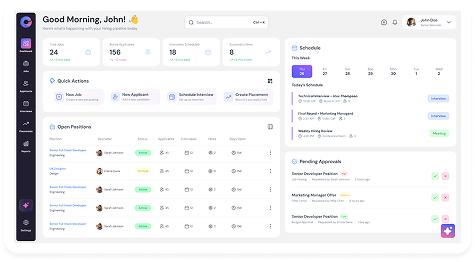Client Relationship Management (CRM) is a strategic approach to managing interactions with your customers. It’s about fostering strong, lasting relationships that translate into loyalty, repeat business, and ultimately, business growth. CRM goes beyond simply storing client contact information; it encompasses the entire client lifecycle, from initial contact to ongoing engagement and retention.
Why is CRM Important?
In today’s competitive landscape, building strong client relationships is paramount. An effective CRM strategy helps you:
- Deliver Exceptional Client Experiences: By streamlining communication, anticipating needs, and providing personalized service, CRM empowers you to deliver exceptional experiences that keep clients happy and coming back for more.
- Boost Sales and Revenue: Stronger client relationships translate into increased sales opportunities and higher customer lifetime value. CRM can help you identify upsell and cross-sell opportunities, nurture leads, and close deals more efficiently.
- Improve Client Retention: Acquiring new clients is crucial, but retaining existing ones is equally important. CRM helps you identify potential churn risks, address client concerns proactively, and foster loyalty.
- Gain Valuable Client Insights: CRM systems collect and store valuable data on client interactions, preferences, and purchase history. This data can be used to gain insights into client behavior, identify trends, and make data-driven decisions to improve your products, services, and marketing strategies.
Key Features of a CRM System:
Modern CRM systems offer a variety of features to streamline client relationship management:
- Centralized Client Database: Store and manage all client information in one secure and accessible location. This ensures everyone on your team has access to the latest client data.
- Communication Tools: CRM systems offer various communication tools like email marketing, social media integration, and live chat features, allowing you to connect with clients on their preferred channels.
- Automated Workflows: Automate repetitive tasks like sending personalized emails, scheduling follow-ups, and generating reports. This frees up your team’s time to focus on building relationships.
- Sales Pipeline Management: Track leads as they progress through the sales funnel, identify potential roadblocks, and manage opportunities effectively.
- Reporting and Analytics: Gain valuable insights into your client relationships, identify areas for improvement, and measure the success of your CRM efforts.
Building a Winning CRM Strategy:
Here are some key considerations for building a successful CRM strategy:
- Customer Segmentation: Segment your clients based on their needs, preferences, and buying behavior. This allows for targeted communication and marketing efforts.
- Data Quality is Key: Ensure your CRM system has accurate and up-to-date client data. Regular data cleansing is essential.
- Focus on Communication: Regular and transparent communication with clients is vital. Keep them informed about your products, services, and company updates.
- Invest in Training: Train your team on how to best utilize the CRM system and build strong client relationships.
- Continuously Improve: CRM is an ongoing process. Regularly evaluate your strategy, identify areas for improvement, and adapt your approach based on client feedback and market trends.
The Future of CRM
The future of CRM is bright, with advancements in technology leading to even more sophisticated tools and capabilities. Here are some potential trends to watch:
- AI-Powered Personalization: CRM systems powered by artificial intelligence (AI) will personalize client experiences by tailoring recommendations, offers, and content based on individual preferences and buying behavior.
- Social Listening & Engagement: CRM systems may integrate with social listening tools, allowing you to proactively engage with clients on social media and address their concerns.
- Predictive Analytics: Advanced analytics could predict client behavior, allowing you to anticipate needs and proactively address potential issues before they arise.
By implementing a robust CRM strategy and leveraging the power of technology, businesses can build lasting client relationships, drive sales growth, and gain a significant edge in the competitive marketplace.

